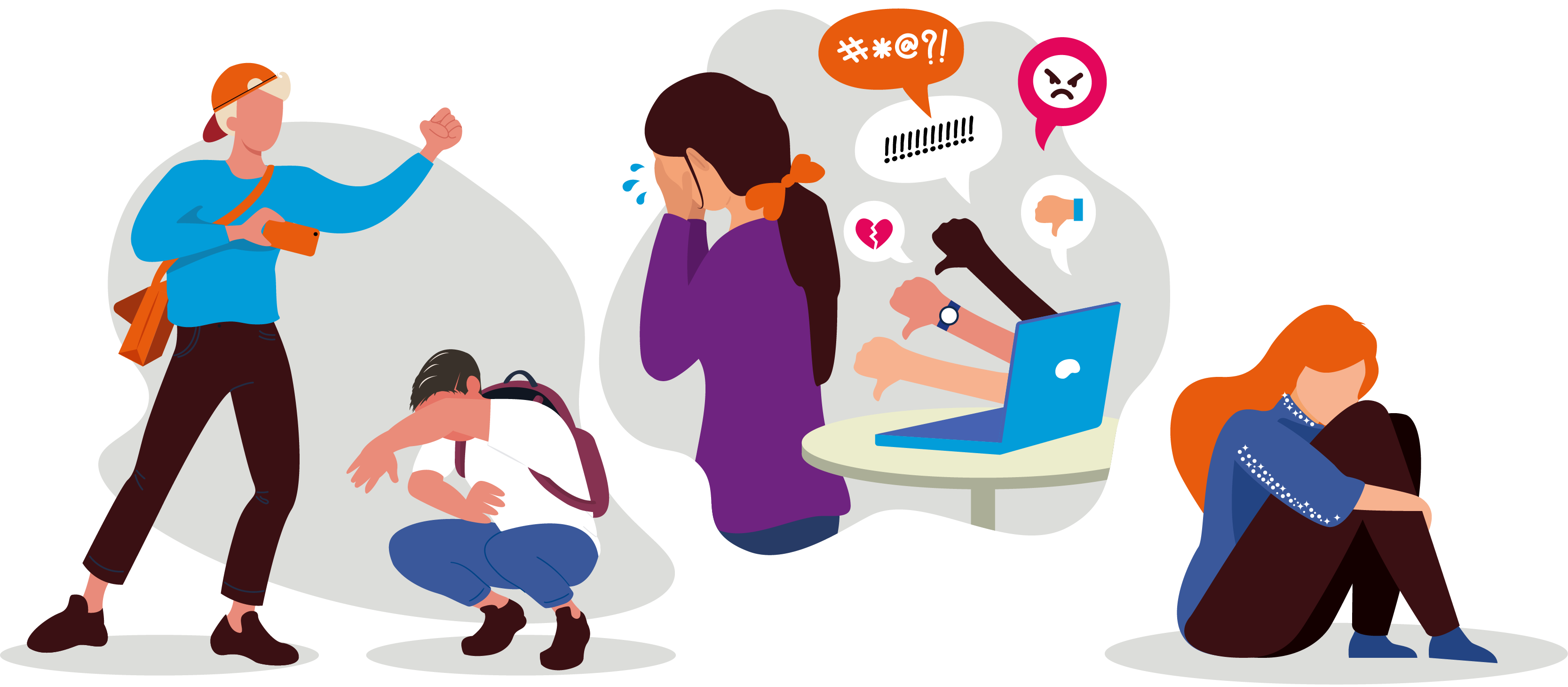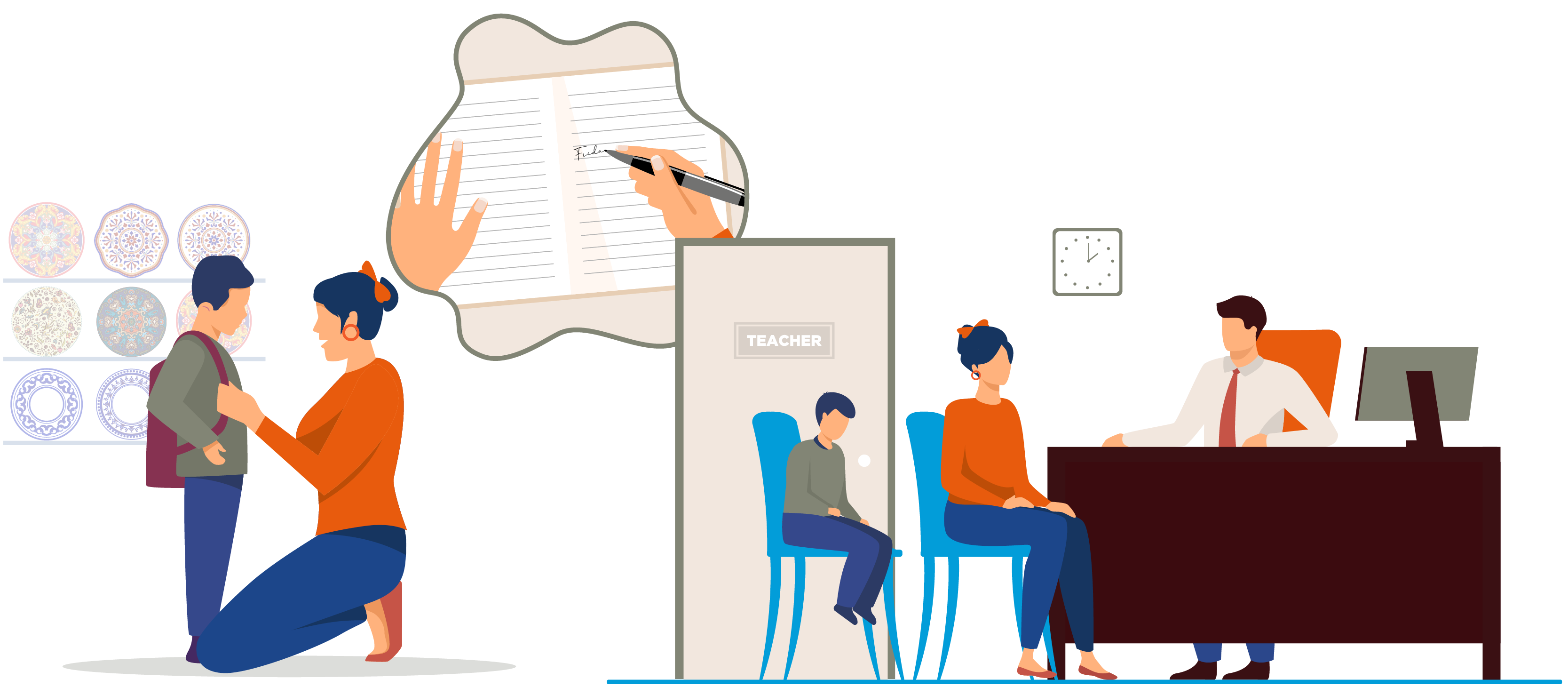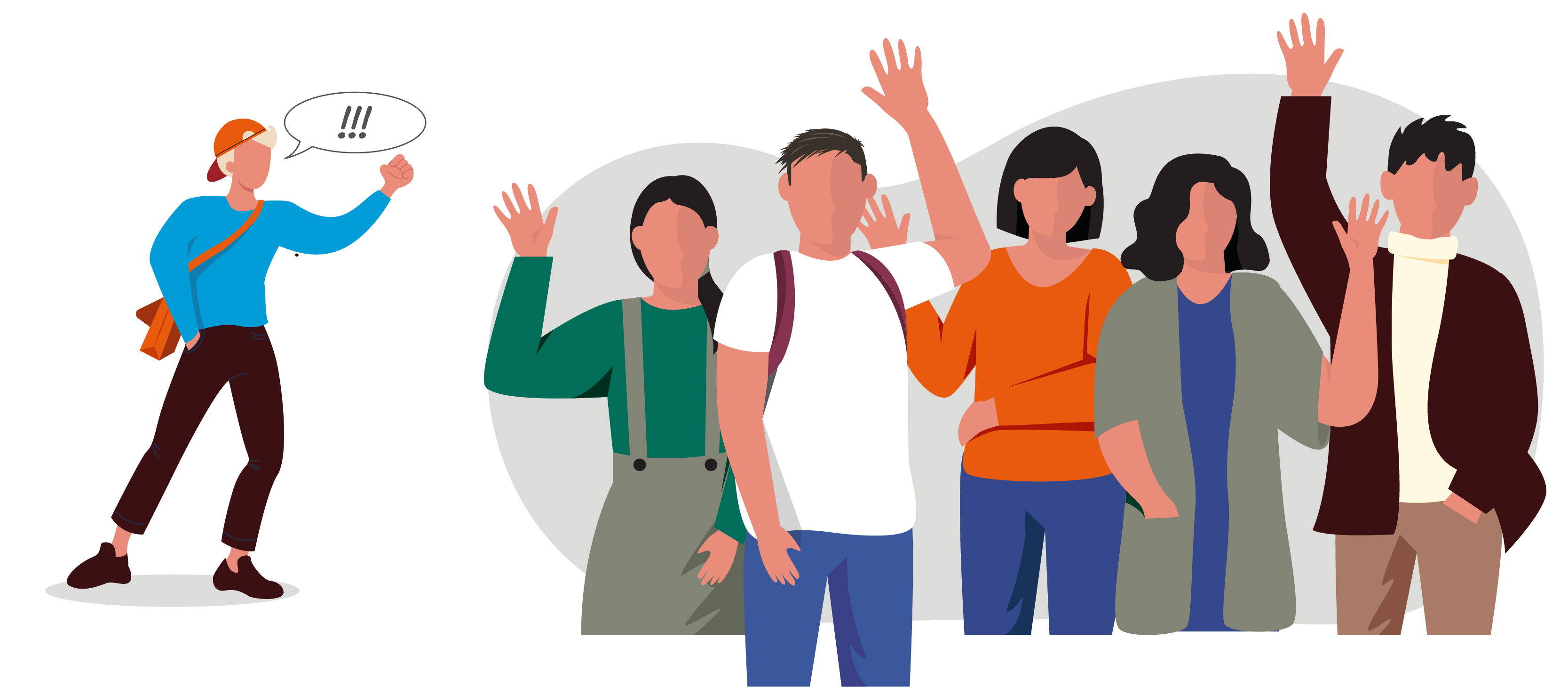Bullying
What is bullying?
Bullying is behaviour that hurts someone else. It can happen anywhere – at school, at home or online. It's usually repeated over a long period of time and can hurt both physically and emotionally

There are lots of different types of things that can be called bullying. Just because someone might not be physically hurting you doesn’t mean that you should not get help.
- Name calling
- Being left out
- Cyber bullying
- Physically hurting
- Intimidation and threats
- Trying to ruin your reputation (spreading rumours or gossip)

What should I do if I am being bullied?
- Talk to someone about it
- Talk to your parents - you can tell them what has been happening
- Talk to your friends - they can help you tell a teacher or your parents or just to feel better.
- Talk to your teacher or another staff member - tell them all about what’s been happening. You could make up a reason to see the teacher about something else, like your homework.
- Keep a record of any time you have been bullied. If you don’t want to write you could record it on your phone or your parent's phone.
- If you can't talk to someone face-to-face go online or call XXXXXXXXX
Only try these strategies if you are not in any danger of being physically hurt and you feel confident you can do them.
- Ignoring the bullying - turn around and walk away
- Pretend you don't care what they say or do to you. You could say 'okay, whatever' and walk away.
- Use strong, sentences starting with the word ‘I’; “I want you to stop that” in a strong confident voice. You could practice this with your friends.
- Making a jokey or funny comment that makes the other person think you don't care about what they say.
- Ask your friends to speak up for you and always do the same for them!
- Write down/draw/record your thoughts and feelings about the bullying to help you think about what you can do.
- Hang out with your friends and be with people who help you feel good about yourself. Good friends respect, encourage and support you. They care for your wellbeing and are fun to be around.
- Online bulling; if you are being bullied over social media or online you can take a screen shot/photo of anything the bully has done. Try and do this straight away in case they try to delete it later.
- Do not respond to what they have written or sent you.
- You can also block them to stop them from being able to contact you.
- If you receive phone calls, make a note of the number and the time of the call.

Useful contacts and links
Information to come
Contacts
List of contacts to come
Websites
Credit to the following websites with informatopn addapted from them
Helping Children Deal with Bullying & Cyberbullying | NSPCC
Bullying and advice on coping and making it stop | Childline
